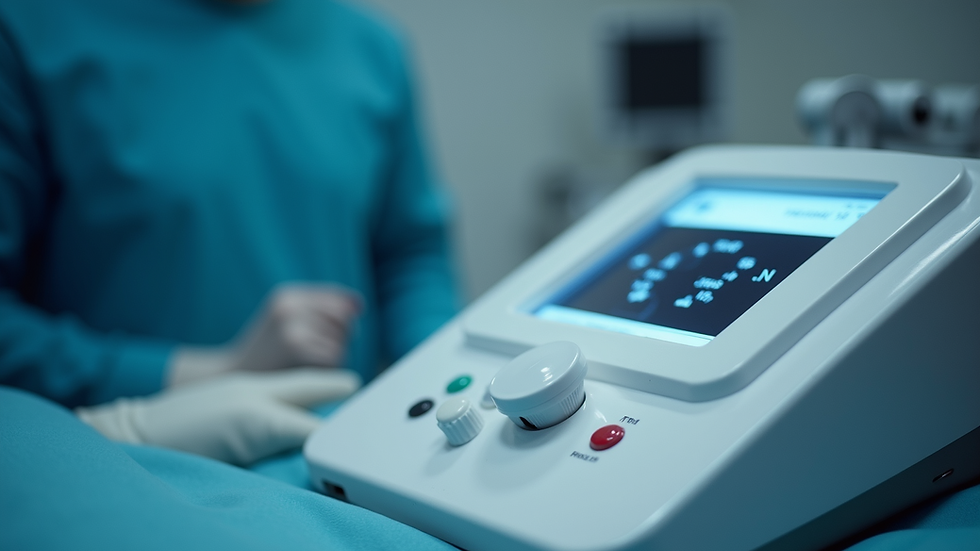Recognising and Addressing Testosterone Deficiency Effects
- Fabio Castiglione

- Sep 30
- 3 min read
Testosterone plays a crucial role in the body, influencing everything from muscle mass to mood. When testosterone levels drop, it can lead to a variety of health issues that affect quality of life. Understanding the effects of low testosterone is essential for recognising symptoms early and seeking appropriate treatment. This article explores the common signs, causes, and practical ways to manage testosterone deficiency.
Understanding the Effects of Low Testosterone
Low testosterone, medically known as hypogonadism, can affect men of all ages but is more common as men get older. Testosterone is a hormone responsible for male sexual development, muscle strength, bone density, and overall vitality. When levels fall below the normal range, it can cause noticeable changes.
Some common effects of low testosterone include:
Reduced libido and sexual dysfunction: A decrease in sexual desire and performance is often one of the first signs.
Fatigue and low energy: Men may feel unusually tired despite adequate rest.
Loss of muscle mass and strength: Testosterone helps build muscle, so low levels can lead to weakness.
Mood changes: Depression, irritability, and difficulty concentrating can occur.
Increased body fat: Particularly around the abdomen.
Decreased bone density: This raises the risk of fractures and osteoporosis.
These symptoms can be subtle and develop gradually, making them easy to overlook or attribute to ageing or stress. However, recognising these signs early can lead to better management and improved wellbeing.

Causes and Risk Factors of Low Testosterone
Several factors can contribute to low testosterone levels. Understanding these can help identify who might be at risk and why symptoms appear.
Ageing
Testosterone levels naturally decline with age, typically starting around 30 years old. This decline is gradual but can become significant enough to cause symptoms in some men.
Medical Conditions
Certain health issues can lower testosterone, including:
Obesity: Excess fat can disrupt hormone balance.
Diabetes: Insulin resistance affects hormone production.
Chronic illnesses: Kidney or liver disease can impact hormone levels.
Infections or injuries: Damage to the testicles or pituitary gland affects testosterone production.
Lifestyle Factors
Poor lifestyle choices can also contribute:
Stress: Chronic stress increases cortisol, which can suppress testosterone.
Poor diet: Lack of essential nutrients affects hormone synthesis.
Lack of exercise: Physical inactivity reduces testosterone production.
Alcohol and drug use: Excessive consumption can impair hormone levels.
Medications
Some medications, such as steroids or opioids, may lower testosterone as a side effect.
Recognising these risk factors can help individuals and healthcare providers take proactive steps to monitor and manage testosterone levels.

Can you improve low testosterone?
The good news is that low testosterone can often be improved through various approaches. Treatment depends on the underlying cause and severity of symptoms.
Lifestyle Changes
Simple lifestyle adjustments can have a significant impact:
Exercise regularly: Strength training and high-intensity interval training (HIIT) are particularly effective.
Eat a balanced diet: Focus on whole foods rich in zinc, vitamin D, and healthy fats.
Manage stress: Techniques like meditation, yoga, or deep breathing can lower cortisol.
Get enough sleep: Aim for 7-9 hours per night to support hormone production.
Limit alcohol and avoid smoking: Both can negatively affect testosterone.
Medical Treatments
For men with clinically low testosterone, hormone replacement therapy (HRT) may be recommended. This can be administered via injections, gels, patches, or pellets. HRT can help restore testosterone levels, improving symptoms such as low libido, fatigue, and muscle loss.
It is important to consult a healthcare professional before starting any treatment. They will perform blood tests and assess overall health to determine the best course of action.
Monitoring and Follow-up
Regular monitoring of testosterone levels and symptoms is essential to ensure treatment effectiveness and adjust as needed.

Recognising When to Seek Help
Because symptoms of low testosterone can overlap with other conditions, it is important to seek medical advice if you experience:
Persistent fatigue or low energy
Decreased sexual desire or erectile dysfunction
Mood changes such as depression or irritability
Unexplained weight gain or loss of muscle mass
Difficulty concentrating or memory problems
Early diagnosis can prevent complications such as osteoporosis or cardiovascular issues. A healthcare provider can perform blood tests to measure testosterone levels and recommend appropriate treatment.
For more detailed information on testosterone deficiency effects, including symptoms and treatment options, visit the linked resource.
Taking Control of Your Health
Addressing low testosterone is about more than just hormone levels. It involves a holistic approach to health and wellbeing. By recognising symptoms early, making positive lifestyle changes, and seeking professional advice, men can improve their quality of life.
Remember, testosterone deficiency is a common issue that can be managed effectively. Don’t hesitate to reach out to a healthcare provider if you suspect you might be affected. Taking control today can lead to better health tomorrow.







Comments